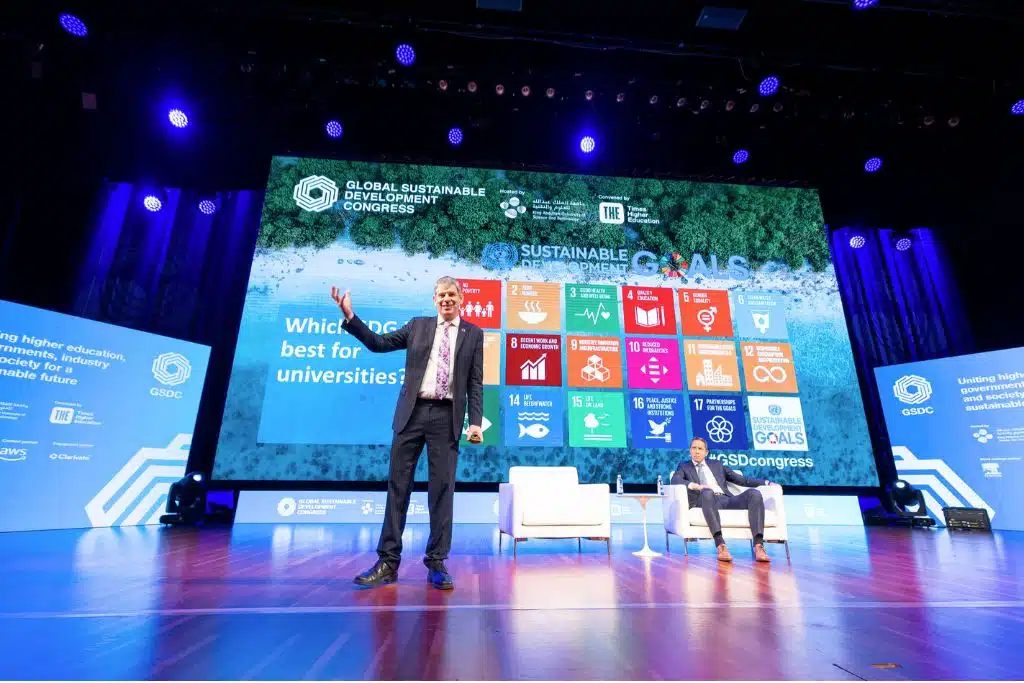
Universities, as centers of excellence and innovation, play a crucial role in addressing the world’s sustainability challenges. Recognizing the need for collaboration, the upcoming Global Sustainable Development Congress will bring together leading academics, sustainability leaders, and stakeholders from diverse sectors to explore solutions and drive progress towards the United Nations’ Sustainable Development Goals (SDGs).
Universities are centres of excellence, expertise and innovations in sustainable development with their cutting-edge research providing creative sparks and finding new solutions to the world’s greatest challenges.
They are drivers of change through their creation of new knowledge to the world’s sustainability challenges and through the development of the next generation of sustainability leaders – but they cannot do it alone.
An upcoming global gathering – the Global Sustainable Development Congress – will bring together some of the world’s greatest minds working on sustainability in higher education – not just some of the globe’s leading academics in the field but also sustainability leaders in the sector as well as university leaders championing the issue too. The event will also feature leading individuals from business, government, and civil society as all four are the vital components that have to work together to reach the 17 United Nations’ Sustainable Development Goals (SDGs).
A report Times Higher Education produced for the 2023 G20 Summit looked at higher education’s role in advancing the UN’s SDGs in the Group of 20. It found that governments in the international forum are underutilising higher education institutions, which are in a unique position to help catalyse progress on reaching the goals. It also found that higher education institutions’ role extends far beyond contributing to just SDG 4 – Quality Education – and that the university sector has the power and influence to significantly impact all 17 goals.
Co-hosted by Thailand’s Ministry of Higher Education, Science, Research and Innovation, the Congress features six core strands of content, all of which are centred around the crucial transformations critical to achieving the SDGs. These include:
Digital revolution for sustainable development;
Education, gender and inequality;
Energy decarbonisation and industry;
Health, well-being and demography;
Sustainable cities and communities;
Sustainable food, land, water and oceans.
The Congress is broken down into four major events. The Global Sustainability Leaders’ Summit is an exclusive gathering of 200 global thought-leaders and innovators to address the most pressing challenges in progressing the SDGs; DataLabs empowers sustainability in higher education through data, expert analysis and global best practice; the Business Schools Showcase focuses on business education’s role in shaping the next generation of sustainable leaders, and the International Green Skills Summit addresses the impact of net zero on the workforce, ensuring the next generation is equipped with the skills they require to build a sustainable future.
In addition, THE’s groundbreaking Impact Rankings 2024, which presents unique data on universities’ pioneering work to meet the UN’s 17 SDGs, will be exclusively revealed at the summit. We will have the highest ever participation in the ranking with 2,152 higher education institutions from 125 countries and regions participating.
Asia is the biggest participant in these rankings, with 1,053 universities from the region submitting data. India is the most-represented nation, with 105 participating institutions, followed by Türkiye with 100, Pakistan with 96, and Japan with 88. Some nations have more than doubled their representation, including Azerbaijan, COP29’s host country – from eight last year to 18 this year.
Representatives from some of the world’s leading universities, speakers from governments, businesses, NGOs, and civil society organisations will be sharing their expert insights on sustainable development. These include Nik Nazmi Nik Ahmad, Malaysia’s Minister of Natural Resources and Environment Sustainability; Katre Olmez, Chief Operating Officer at the Ban Ki-moon Centre for Global Citizens; Antara Ganguli, Director of the UN Girls’ Education Initiative; and Caterina Meloni, Lead Gender Finance and Climate Advisor at Connecting Founders.
Partner With Us
The Institute for Sustainability Africa (INŚAF) is an independent multi-disciplinary think tank and research institute founded in Zimbabwe in 2010 with the Vision to advance sustainability initiatives for Africa.




